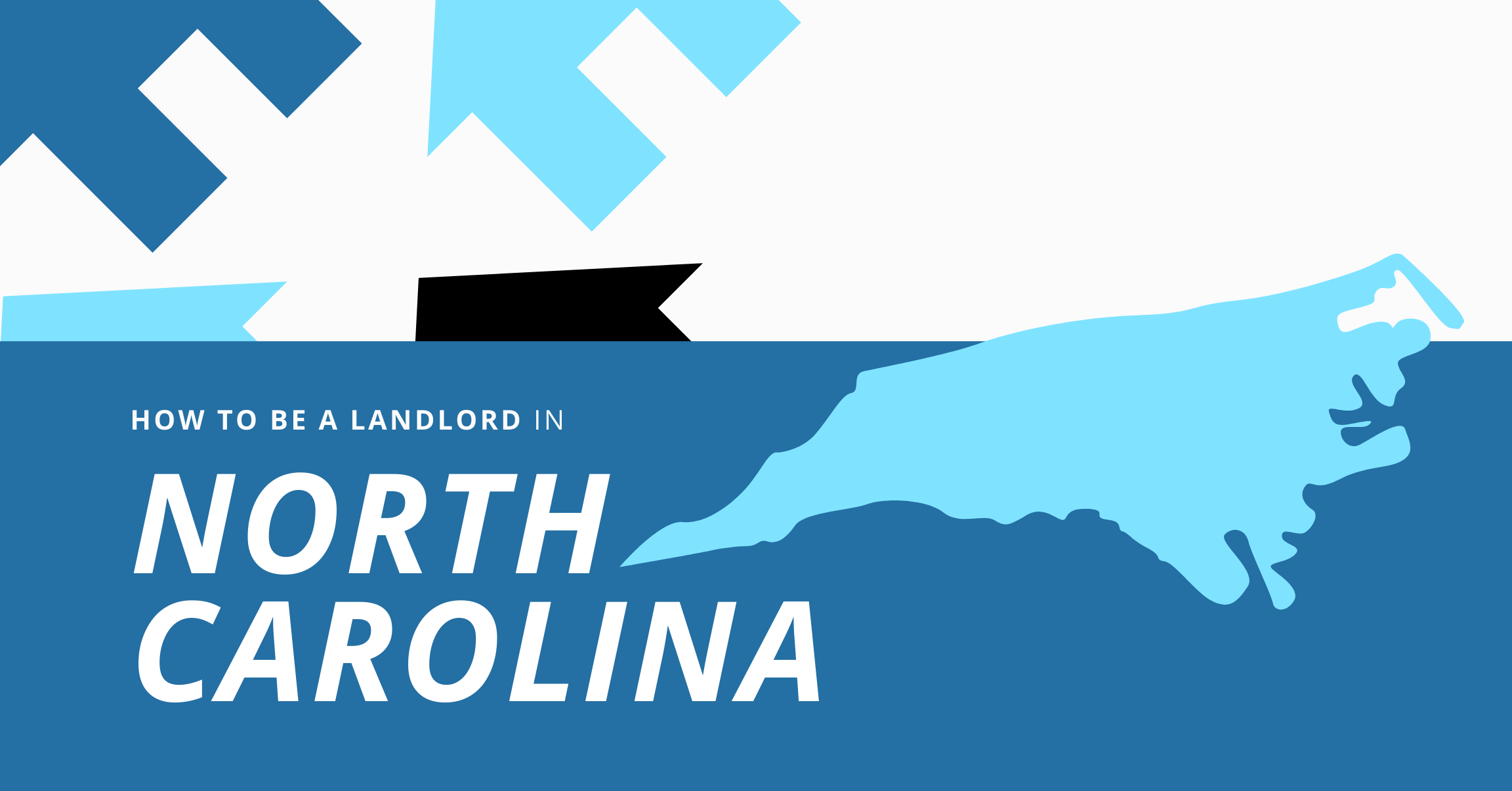Are you ready to start making money on a rental property in the Tar Heel State? North Carolina is an incredible place to become a landlord for numerous reasons. The average rent in top North Carolina cities can be anywhere from $800 to $1,300 which makes for an excellent source of passive income. Being the ninth most populous state in the U.S. with a booming tourism industry, North Carolina is sure to have a surplus of renters.
Calculate ROI on Rental Property in North Carolina
Ready to find out how much money that you can make from your North Carolina rental property? Enter your property’s information in our rental calculator to get started today!
Marketing. Applications. Leases. Payments.
1. Preparing your North Carolina rental property
The rental properties that bring in the highest rent amounts in North Carolina are pet-friendly, have upgraded flooring and appliances, HVAC, and outdoor living spaces. If you upgrade your rental property to include these amenities then it could be the difference between charging $900 per month and $1,200 per month for rent. A short-term additional investment to make these upgrades could result in a much larger long-term profit. Another luxury feature that’s highly sought after is an open kitchen floor plan.
Best Practice: After deciding on your budget, it’s important to look into other rental properties in your surrounding area. This will allow you to see the amenities they offer and for what price so you can compare your rental property’s amenities and price. You can then adjust your pricing accordingly or improve your rental property to increase the rent you can charge. Get a free rent estimate report to find out what your neighborhood’s pricing market looks like.
2. Research the North Carolina Landlord-Tenant laws
Spend time researching the North Carolina landlord-tenant laws. These will help you abide by all state and local rental laws as well as fully understand what you and the tenant are each responsible for. They can also help you when making decisions about security deposits, rental property maintenance, and even evictions.
Best Practice: Familiarize yourself with North Carolina landlord rights, tenants’ rights, and the fair housing laws in your city to make sure that you are always in compliance.
3. Advertise your rental property
When advertising your rental property it’s essential to use both physical signs as well as online marketing. This will allow you to reach as many people as possible and increase the number of applications you receive. You can advertise your rental property for free across multiple websites by creating a rental profile. Make sure you use high-quality photos of your rental property so it’s more appealing to prospective tenants.

Best Practice: Use these real estate photography tips to guarantee you have the best possible rental property photos.
4. Find the perfect tenant
Everyone has heard the horror stories of landlords dealing with a bad tenant that ends in eviction. To avoid a situation like this use a tenant screening service that will allow you to easily identify any red flags a prospective tenant might have. Screening your tenants will allow you to find the perfect tenant for your rental property.
Best Practice: Combine the rental application and tenant screening process using a free online tool designed with landlords like you in mind.
5. Landlord Check-Ins & Maintenance
North Carolina does not have laws regarding notice of entry. However, it’s recommended that you provide 24 hours notice in writing that specifies the reason that you will be entering the rental property. It’s also suggested that you only enter the rental property Monday through Friday between the hours of 9:00 AM – 5:00 PM. The main exception to this being if there is an emergency, such as a fire or water leak, that requires immediate attention.
Best Practice: You should include maintenance and repair information in your lease to avoid any potential issues with your tenant in the future. Also, check to make sure you’re complying with North Carolina rental laws when creating your lease.
Bonus: Learn About Taxes on Rental Income in North Carolina
In North Carolina, rental income is taxed as ordinary income. The tax rate for individual income tax in North Carolina is 5.25%. However, your operating expenses such as mortgage interest, property taxes, property insurance, yard maintenance, and pest control can reduce your taxable rental property income.
Best Practice: Keep receipts from any services you paid for to maintain or upgrade your rental property.
Becoming a landlord in North Carolina can be made easy with the help of free landlord tools like TurboTenant. We’ll help you advertise your rental property, accept applications, screen tenants to find the perfect renter, create a lease, accept rent payments, and so much more. North Carolina is the perfect place to become a landlord. Get started making passive income today!

